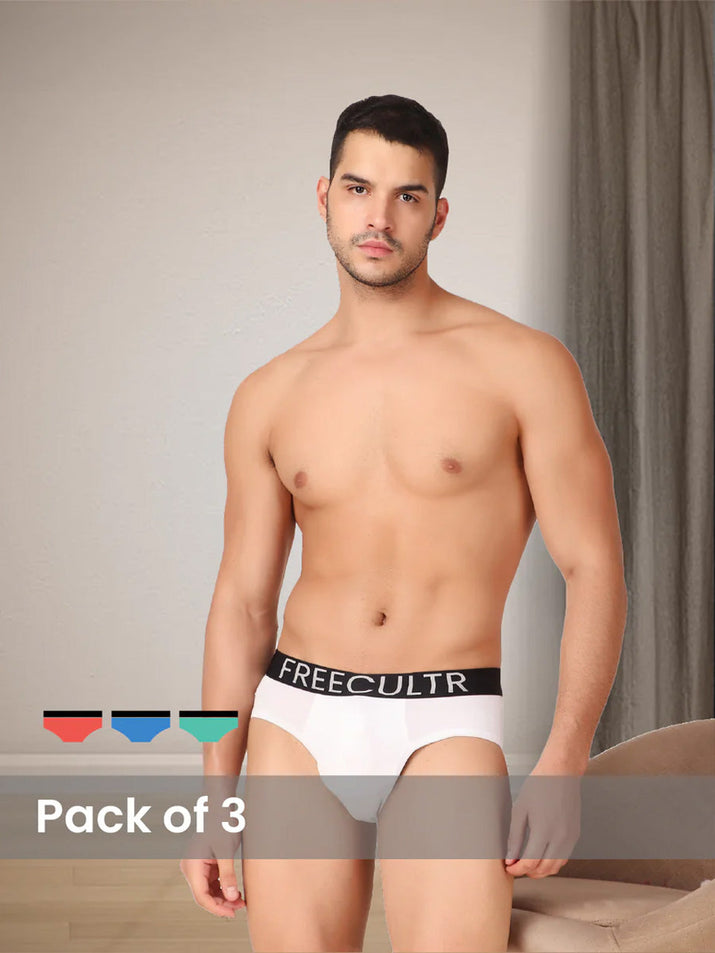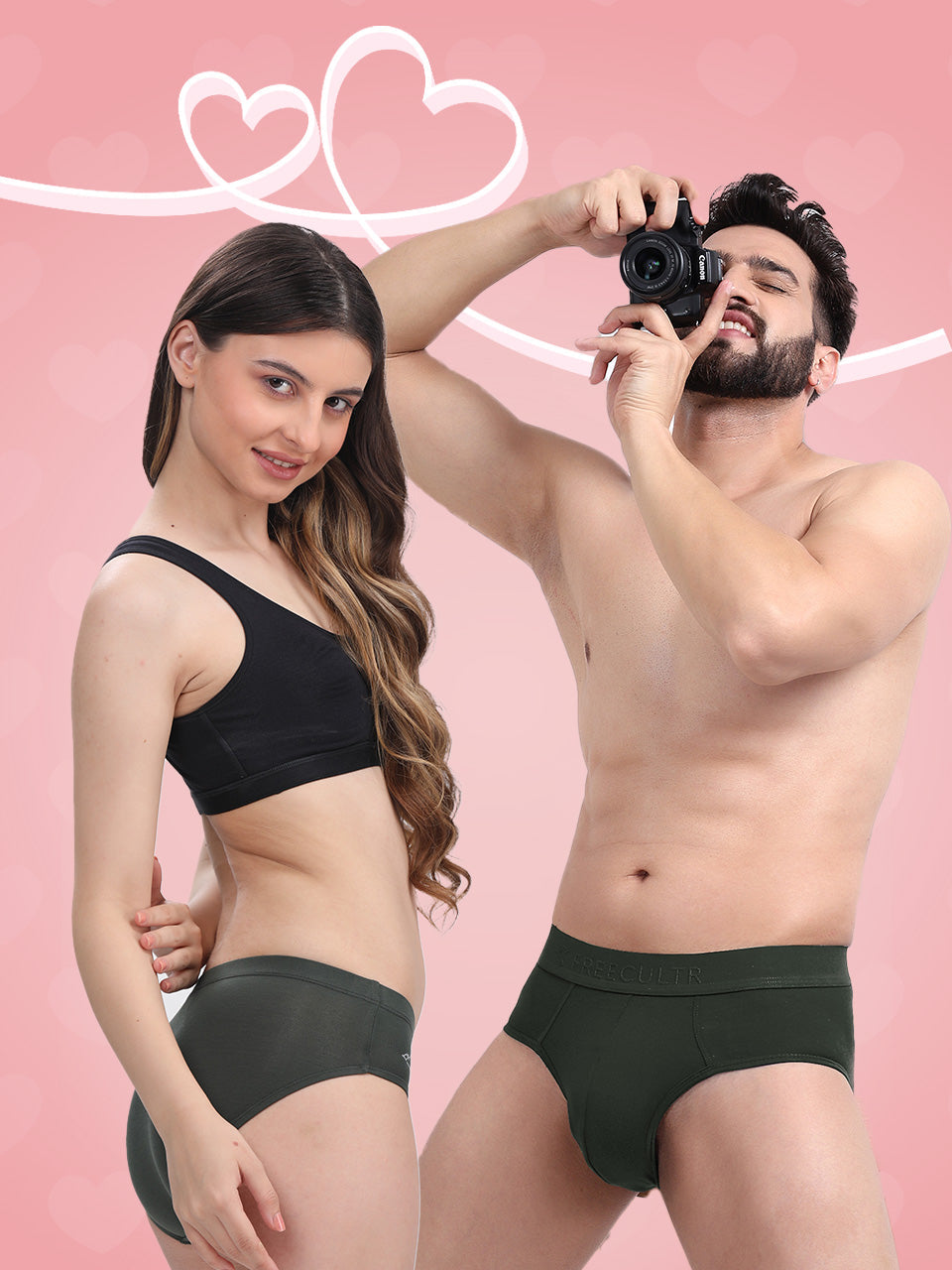The global underwear market, projected to reach $17 billion by 2029, faces increasing scrutiny for its environmental impact. Fast fashion practices contribute significantly to textile waste and resource depletion. Several key players are now exploring sustainable alternatives. Freecultr, for example, is tackling these challenges head-on by focusing on organic cotton, innovative dyes. Ethical production methods. We'll examine how Freecultr is implementing these strategies to reduce its carbon footprint and water usage, while also navigating supply chain complexities and consumer expectations for comfort and affordability in the evolving landscape of eco-conscious apparel.

The Problem with Conventional Underwear Production
The fashion industry, while bringing us style and self-expression, has a significant environmental footprint. Conventional underwear production is no exception. Let's break down the key issues:
- Resource Intensive: Traditional underwear often relies heavily on water-intensive crops like cotton. Growing cotton requires vast amounts of water, pesticides. Fertilizers, leading to soil degradation and water pollution.
- Chemical Usage: The dyeing and finishing processes in textile manufacturing frequently involve harsh chemicals that can be harmful to both the environment and human health. These chemicals can end up in waterways, impacting aquatic life and potentially contaminating drinking water sources.
- Waste Generation: "Fast fashion" principles contribute to a culture of disposability. Underwear, often considered a basic necessity, is frequently discarded after relatively short periods of use, leading to textile waste that ends up in landfills. The breakdown of these materials can release harmful greenhouse gases.
- Ethical Concerns: Often overlooked, the labor practices in conventional textile manufacturing can be exploitative, with workers facing unsafe conditions and unfair wages.
These factors highlight the urgent need for more sustainable practices in the underwear industry – a need that brands like Freecultr are actively addressing.
Freecultr's Commitment to Sustainable Materials
Freecultr is making strides towards a cleaner underwear industry by prioritizing sustainable materials. This means choosing fabrics that have a lower environmental impact compared to conventional options. Here's a closer look at some of the key materials Freecultr utilizes:
- Organic Cotton: Organic cotton is grown without the use of synthetic pesticides, herbicides, or fertilizers. This reduces the risk of soil and water contamination and promotes biodiversity. It's a softer, gentler option for the skin, minimizing potential irritation. Freecultr prioritizes Global Organic Textile Standard (GOTS) certified organic cotton, ensuring that it meets strict environmental and social criteria throughout the entire supply chain.
- TENCEL™ Modal: TENCEL™ Modal is a semi-synthetic fiber made from sustainably harvested beechwood trees. The production process is a closed-loop system, meaning that the solvents used to dissolve the wood pulp are recovered and reused, minimizing waste. TENCEL™ Modal is known for its exceptional softness, breathability. Moisture-wicking properties, making it a perfect choice for underwear. Compared to cotton, TENCEL™ Modal requires significantly less water and land to produce.
- Recycled Fabrics: Freecultr incorporates recycled materials, such as recycled nylon or polyester, into its underwear designs. Using recycled materials reduces the demand for virgin resources and helps divert waste from landfills. For instance, recycled nylon can be made from discarded fishing nets, helping to clean up our oceans.
By carefully selecting these materials, Freecultr minimizes its environmental impact and offers customers a more sustainable and comfortable underwear option. This commitment to sustainable materials is a cornerstone of Freecultr's mission to create a greener fashion industry.
Eco-Friendly Production Processes
Beyond choosing the right materials, Freecultr emphasizes eco-friendly production processes to further minimize its environmental footprint. This involves implementing strategies that reduce water and energy consumption, minimize waste. Eliminate the use of harmful chemicals.
- Water Conservation: Freecultr partners with factories that utilize water-efficient dyeing and washing techniques. This may involve using closed-loop water recycling systems that treat and reuse wastewater, significantly reducing water consumption.
- Energy Efficiency: Freecultr seeks out factories that prioritize energy efficiency by using renewable energy sources like solar power or implementing energy-saving technologies.
- Sustainable Dyeing: Traditional dyeing processes can be incredibly polluting. Freecultr utilizes low-impact dyes that require less water and energy and do not contain harmful chemicals. They may also explore innovative dyeing techniques like air dyeing or digital printing, which further reduce water and chemical usage.
- Waste Reduction: Freecultr implements strategies to minimize waste throughout the production process. This can include optimizing cutting patterns to reduce fabric scraps, recycling textile waste. Using biodegradable packaging.
By implementing these eco-friendly production processes, Freecultr reduces its environmental impact and ensures that its underwear is produced in a responsible and sustainable manner.
Ethical Manufacturing and Fair Labor Practices
Sustainability isn't just about the environment; it also encompasses ethical considerations and fair labor practices. Freecultr is committed to ensuring that its underwear is produced in factories that provide safe working conditions, fair wages. Respect for workers' rights.
Freecultr partners with factories that adhere to internationally recognized labor standards, such as those set by the International Labour Organization (ILO). These standards cover a range of issues, including:
- Safe Working Conditions: Ensuring that factories provide a safe and healthy working environment for all employees.
- Fair Wages: Paying workers a fair living wage that meets their basic needs.
- Freedom of Association: Respecting workers' right to form and join trade unions.
- No Child Labor: Ensuring that no child labor is used in the production of its underwear.
- No Forced Labor: Ensuring that no forced or compulsory labor is used in the production of its underwear.
Freecultr conducts regular audits of its partner factories to ensure compliance with these standards. This helps to identify and address any potential issues and ensure that workers are treated with dignity and respect. By prioritizing ethical manufacturing and fair labor practices, Freecultr demonstrates its commitment to social responsibility and creating a more just and equitable fashion industry.
Durability and Longevity: Reducing the Need for Replacements
One of the most effective ways to reduce the environmental impact of underwear is to extend its lifespan. Fast fashion encourages frequent replacements, leading to increased waste and resource consumption. Freecultr addresses this issue by focusing on durability and longevity in its designs and manufacturing processes.
Freecultr uses high-quality materials and construction techniques to ensure that its underwear is built to last. This includes:
- Reinforced Seams: Strengthening seams to prevent tearing and extend the lifespan of the underwear.
- Durable Fabrics: Selecting fabrics that are resistant to wear and tear and can withstand repeated washing.
- Careful Construction: Paying attention to detail in the construction process to ensure that the underwear is well-made and long-lasting.
By creating underwear that is both durable and comfortable, Freecultr encourages customers to keep their underwear for longer, reducing the need for frequent replacements. This not only saves consumers money but also reduces the environmental impact of the underwear industry. This focus on quality and durability is essential for creating a more sustainable and circular fashion system. Freecultr believes that fashion and comfort can go hand in hand with longevity and sustainability.
Transparency and Traceability in the Supply Chain
Transparency and traceability are essential for ensuring the integrity of a sustainable supply chain. Consumers increasingly want to know where their products come from and how they are made. Freecultr is committed to providing its customers with greater transparency and traceability throughout its supply chain.
This involves:
- Supplier Relationships: Building strong relationships with its suppliers and working closely with them to ensure that they meet its sustainability standards.
- Supply Chain Mapping: Mapping its entire supply chain to identify and track the origin of its materials and the various stages of production.
- Certifications: Obtaining certifications from independent organizations to verify the sustainability of its materials and production processes. This includes certifications like GOTS for organic cotton and OEKO-TEX® for ensuring that textiles are free from harmful chemicals.
- Communicating with Customers: Providing customers with insights about its sustainability efforts through its website, product labels. Marketing materials.
By promoting transparency and traceability, Freecultr empowers consumers to make informed purchasing decisions and supports a more responsible and accountable fashion industry. This commitment to openness builds trust and allows customers to confidently choose Freecultr as a brand that aligns with their values.
Conclusion
The Future Vision Freecultr's commitment to building a cleaner, greener underwear industry isn't just a trend; it's a necessary evolution. As consumers become increasingly aware of the environmental impact of their choices, brands like Freecultr, prioritizing sustainable materials and ethical production, will undoubtedly lead the way. Looking ahead, we anticipate a surge in demand for transparency and traceability within the garment industry, fueled by innovations in textile recycling and closed-loop manufacturing. To stay ahead, explore certifications like GOTS and Fair Trade to deepen your understanding of sustainable practices. Consider learning about innovative materials like seaweed fabrics or mushroom leather, which are poised to disrupt the industry. My personal tip? Start small! Even switching to eco-friendly detergents and opting for air drying your Freecultr underwear contributes to a smaller carbon footprint. The possibilities for a more responsible and eco-conscious future in fashion are endless. Freecultr is proving that comfort and sustainability can coexist beautifully. This could change the fashion industry for the better, one step at a time Source.More Articles
Soft, Sustainable. Stylish: Freeculture’s Edge Over Traditional BrandsWhat Makes Freeculture More Than Just Another Clothing Brand
Comfort Meets Culture: How Freeculture Redefines Basics Better Than Competitors
Not Just Another T-Shirt Brand: Why Freeculture is the Future of Innerwear
FAQs
Okay, so Freecultr's talking about being 'cleaner and greener' with underwear... What does that actually mean?
Great question! , it boils down to making conscious choices about the materials we use and how we make our undies. We're talking about swapping out traditional cotton for more sustainable options like organic cotton or bamboo, which need way less water and fewer pesticides. Plus, we're looking at reducing waste in our production process and using eco-friendly dyes. It’s about minimizing our impact on the planet, from farm to your drawer.
What's so bad about regular cotton underwear anyway? I've been wearing it forever!
Nothing inherently bad. Traditional cotton farming can be pretty resource-intensive. Think lots of water, pesticides. Fertilizers. These can harm the environment and the people who work the land. Sustainable options, like organic cotton, avoid these harmful practices, making them a kinder choice for the planet and the farmers.
You mentioned bamboo... Underwear made of bamboo? Is that even comfortable?
You bet it is! Bamboo fabric is incredibly soft, breathable. Moisture-wicking. It's naturally antibacterial too, which is a nice bonus for underwear. Trust me, once you try it, you might never go back. It feels fantastic against the skin.
So, Freecultr just uses better materials? Is that the whole story?
Nope! Materials are a big piece of the puzzle. It’s more than that. We're also focused on ethical production – ensuring fair wages and safe working conditions for everyone involved in making our underwear. Plus, we're striving to minimize waste throughout the entire supply chain, from cutting fabric efficiently to using recycled packaging.
How can I, as a customer, know that Freecultr is actually doing what they say they're doing?
Transparency is super essential to us! We’re committed to providing insights about our materials, production processes. Certifications. Look for details on our website about where our materials come from, the certifications we hold (like GOTS for organic cotton). Our commitment to fair labor practices. We want you to feel confident in your purchase!
Does 'eco-friendly' underwear cost a fortune? I'm on a budget!
We comprehend! While sustainable options might sometimes have a slightly higher price tag, we believe in making them accessible. We strive to offer competitive pricing without compromising on quality or our commitment to ethical and environmental responsibility. Think of it as an investment in your comfort and the planet – a win-win!
What happens to my old Freecultr underwear when I'm done with it?
That's a great question about circularity! While underwear can be tricky to recycle, we're actively exploring options for end-of-life solutions. In the meantime, we encourage you to check local textile recycling programs or consider repurposing your old underwear – perhaps as cleaning rags or stuffing for pet beds. We're always looking for innovative ways to minimize waste and close the loop.





